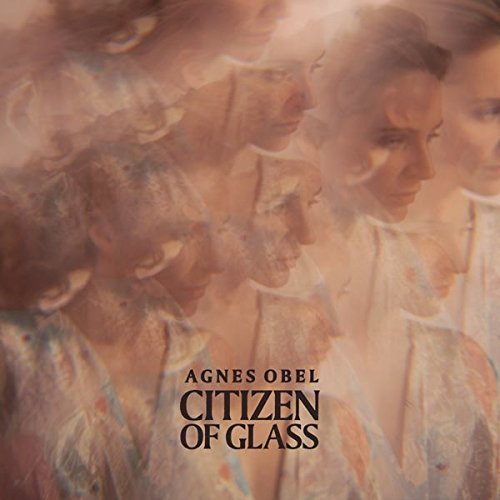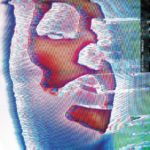Bizarre question. How interesting is glass? Sure, it’s a useful modern day material that’s presence is omnipresent in building structures, art galleries and oenology but ever thought about it’s metaphorical and poetic qualities? One talented and erudite Dane, whose music already shares the personality of glass in that it’s noticeably delicate and fragile, would like to explore that question.
Although her music sounds like it could exist hidden in a forest centuries ago with its classical coarse wooden atmosphere, Agnes Obel comments on the topical metropolitan issue of the danger of social media – with similar technological anxiety to Emmy The Great’s Second Love LP – and how it’s reached a point where humans habitually display so much information about themselves online that their existential form has become as transparent, exposed and vulnerable as glass. A lack of privacy has made humans become glass citizens just like Obel on the front cover of their third record Citizen of Glass.
The fact that the internet is under surveillance and can be exploited easily is what makes lead single ‘Familiar’ sound like an anthem for identity freedom. Her stoic portrait is displayed in large pixels seemingly inside a computer screen and the lyrics display a love that aims to escape a the possible future of Orwellian controlling force: “Under a mask of vermillion ruling eyes/Them in the dark on who we are, gonna be the death of me.”
The title of ‘Trojan Horses’ also springs to mind the insecurity of the internet and paired with its original meaning of a Ancient Greek form of disguise, it fits within Obel’s thoughts about the juxtaposition of concealed/exposed self. From the lyrics, it’s possible to envision Obel’s mind on one side of a glass window peering at her physical herself on the other side judgmentally but unable to act on her criticisms like the phenomenon of autoscopy : “I tell myself I wanna hide. Silent reader of my mind, do you know what I will ask for you?” This trapped and submissive feeling is also heard on ‘It’s Happening Again’: “To exile from the light. To unfold that prisoner, they call a mind.”
Production wise, Citizen of Glass can actually be more opaque. The musician uses a magnanimous amount of layers to create her compositions. One advantage of this is that it distorts the character of her tone. This is most notable on Familiar, in which she duets with a male version of herself. However, the multitude of layering also makes it hard to identify the significant and praiseworthy new additions of the rare 1920s instrument Trantonium and the Tchaikovsky-associated celeste, which for all the effort of including them in her growing chamber of instruments hide rather than colourfully present themselves.
For all the sophisticated ingenuity, the downside to her whispery and quiet textures (including the routine inclusion of piano interludes) is that they must be heard in the right context because as the album wears on they tend to fade into the background and feel soporific. Yet when focused on with special attention and intellectual appreciation they can be mesmerising. Perhaps, just like the nature of glass.




